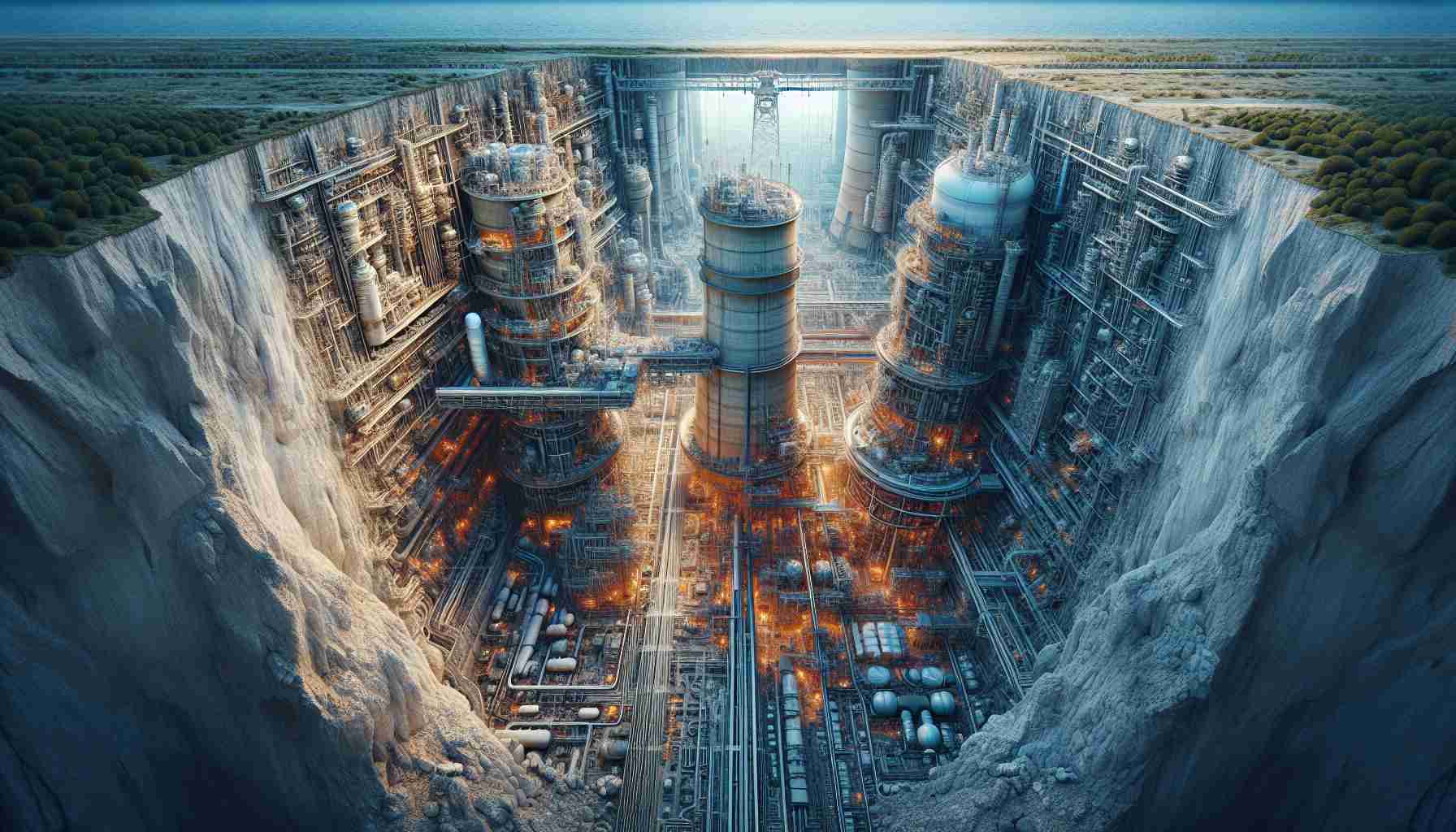In a recent discussion on Australian media, Climate Change and Energy Minister Chris Bowen highlighted significant concerns regarding the Coalition’s proposed nuclear energy plan. He emphasized that ensuring the safety of nuclear facilities would demand substantial government funding, which he estimated could reach hundreds of millions of dollars, all sourced from taxpayers. This has sparked controversy, with Bowen arguing that the Coalition’s approach would not only strain public funds but also pose unnecessary health risks.
In a parallel development, opposition leader Peter Dutton defended the Coalition’s nuclear initiative and characterized Labor’s critique as immature. He stated that a video shared by Labor implied a direct link between nuclear plants and increased health risks, a claim he dismissed as sensationalist. Dutton asserted the need for a more serious discussion on nuclear energy rather than engaging in what he called “juvenile ad campaigns.”
Adding to the political turmoil, Nationals MP Keith Pitt announced his resignation from politics, citing frustrations concerning his position in the party. Dutton asserted that Pitt’s departure was not indicative of instability within the Nationals.
The debate intensifies as the Labor government faces accusations from the Greens regarding coal expansion approvals. Bowen contended that these extensions are necessary for metallurgical coal, a key component in steel production.
As the energy landscape evolves, the policies surrounding nuclear and fossil fuels continue to stir controversy and debate in Australia.
Australia’s Nuclear Energy Controversy: Funding, Safety, and Political Turmoil
Nuclear Energy Debate in Australia
In the ongoing discourse surrounding Australia’s energy future, significant attention is being given to the government’s stance on nuclear energy. Climate Change and Energy Minister Chris Bowen has raised alarm over the Coalition’s proposed nuclear energy plan, emphasizing that the safety of nuclear facilities would necessitate substantial government funding. Bowen’s estimates suggest that costs could soar into the hundreds of millions of dollars, raising questions about the fiscal responsibility of such initiatives, particularly when sourced from taxpayer funds.
Pros and Cons of Nuclear Energy
Pros:
1. Low Greenhouse Gas Emissions: Nuclear power plants produce minimal greenhouse gas emissions during operation, making them an attractive option for reducing carbon footprints.
2. High Energy Density: Nuclear energy offers a high energy output from a small amount of fuel, which could help meet Australia’s growing energy demands sustainably.
3. Job Creation: The establishment of nuclear facilities could create numerous jobs, from construction to operation and maintenance.
Cons:
1. Safety Concerns: The potential risks associated with nuclear accidents can have serious health implications for nearby populations, as highlighted by Bowen’s statements.
2. High Initial Costs: The substantial upfront investment required to build nuclear reactors poses a financial risk for taxpayers and government resources.
3. Waste Management: The management of radioactive waste remains a contentious issue, as effective long-term solutions are still being developed.
Political Reactions and Criticism
Opposition leader Peter Dutton has defended the Coalition’s push for nuclear energy, framing Labor’s criticisms as “juvenile.” He argued against the sensational nature of claims suggesting a direct correlation between nuclear plants and health risks, urging for a more mature dialogue on the subject. Dutton’s remarks indicate a divide within Australian politics on how best to approach energy crises and climate change, reflecting a tension between environmental concerns and economic growth.
Adding to the political landscape, Nationals MP Keith Pitt announced his resignation, which some speculate could be a response to internal party dynamics amid these contentious discussions. However, Dutton maintains that Pitt’s exit does not reflect instability in the Nationals, underscoring the ongoing tension in energy policy debates.
The Role of Coal in Energy Strategy
As the Labor government navigates the complexities of energy policy, the accusation from the Greens concerning coal expansion approvals has sparked further debate. Bowen defended the approvals, arguing the necessity for metallurgical coal in steel production, thus positioning coal as a significant player in Australia’s energy future despite its controversial status.
Looking Ahead: Trends and Innovations
The debate over nuclear energy in Australia not only involves immediate safety and funding concerns but also taps into broader trends in global energy innovation. As countries around the world explore renewable energy sources, Australia may need to balance its fossil fuel reliance with the integration of safer nuclear technology.
Conclusion
The discussions surrounding nuclear energy in Australia highlight a critical juncture in the nation’s energy policy. Stakeholders from different political spectrums present competing narratives around safety, funding, and the future of energy in Australia. The outcome of these debates could shape the direction of energy innovation and sustainability in the years to come.
For more insights on renewable energy policies and political discussions in Australia, visit energy.gov.au.
